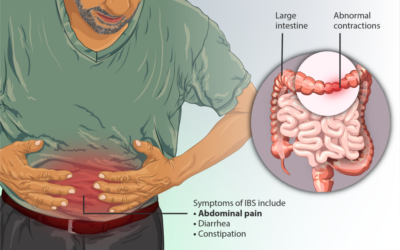The Specific Carbohydrate Diet is an elimination diet that removes certain types of carbohydrates. It is a very strict grain free, lactose free, and sucrose free diet. This diet is targeted for those with gastrointestinal disorders, including IBD, IBS, Crohn’s disease, ulcerative colitis, celiac disease and many more. The goal of this diet is to improve the function of the enzymes on the intestinal cell surface. These enzymes were damaged from the growth of bacteria and yeast caused by carbohydrates in the form of sugar. This imbalance and overgrowth of bacteria prevents proper digestion and absorption of carbohydrates meaning this also causes a nutrient deficiency along with gastrointestinal issues. The goal of SCD is to correct the digestional imbalance by eliminating most carbohydrates and only allowing specific ones that can be well absorbed. The carbohydrates that are being removed from your diet include those that have two or more linked sugar molecules. Any food with disaccharides, oligosaccharides, or polysaccharides are not allowed when on this diet. That includes foods like potatoes, processed foods, grains, most dairy, nuts, sugar and most legumes.
An advantage of this diet is that many people with gastrointestinal problems who follow this diet strictly will see a positive change in their symptoms. While this diet does prohibit many kinds of carbs, it does allow for unbounded sugar molecules called monosaccharides because they are easily digestible. Some examples of foods you can still eat are fresh or frozen fruits and vegetables except those high in starch, meats, eggs, nuts, homemade yogurt and natural cheeses . Fruits and low starch vegetables should be consumed as close to their natural state as possible to get all the nutrients they provide. All meat is allowed as long as it is not processed because processed foods might have added sugars and grains. While most dairy is not on the plan for this diet, there are a few cheese options that are allowed along with yogurt that has been fermented for 24 hours.
While a SCD seems to be the answer for some people with gastrointestinal problems, it does have many negatives that deter people from trying it. The diet is very restrictive, eliminating entire food groups that could provide you with lots of nutritional value. It is very important to be aware that if you follow this diet, you will need to combat nutritional deficiencies with supplements. This is especially important for vitamin D and calcium because these nutrients are naturally in a lot of dairy and grain products that will be cut out from your diet. Since the list of foods not allowed is so long, it can be very hard to follow for most people. Ingredient labels on the back of packages can be hard to read, especially when they use hidden names of sugar instead of the common names that are easily recognizable. Another disadvantage with this diet is since it is so restrictive, a person following this plan could not consume enough calories causing them to lose weight when they did not want to. Being underweight is already a problem when it comes to people with gastrointestinal problems so restricting their foods more could cause this problem to get worse. One of the main reasons the SCD is not highly recommended to try yet is because of the lack of research. There are a few small clinical studies that have shown improvement in patients with Crohn’s disease and ulcerative colitis but that isn’t enough to recommend this diet to anyone who wants to try it. While most experts don’t think this diet is harmful, it is important to have the guidance of a medical professional to make sure you are getting enough nutrients, eating the correct foods and maintaining a healthy weight. It is important to note that the SCD is not a weight loss plan like other low carbohydrate diets.
Since the SCD diet is so restricted and there’s little research on the effectiveness, people with gastrointestinal issues could try other diets like the low FODMAP diet or a gluten free diet. These diets are less restrictive and have been proven to help some people with IBS and IBD. It is important to consider all the pros and cons of any diet before starting. SCD can improve your health if done properly, given your unique health needs based on age, race, activity, health and other factors affecting your overall well being. To tailor this diet to your specific needs, contact us for further information, guidance and direct health coaching.





0 Comments